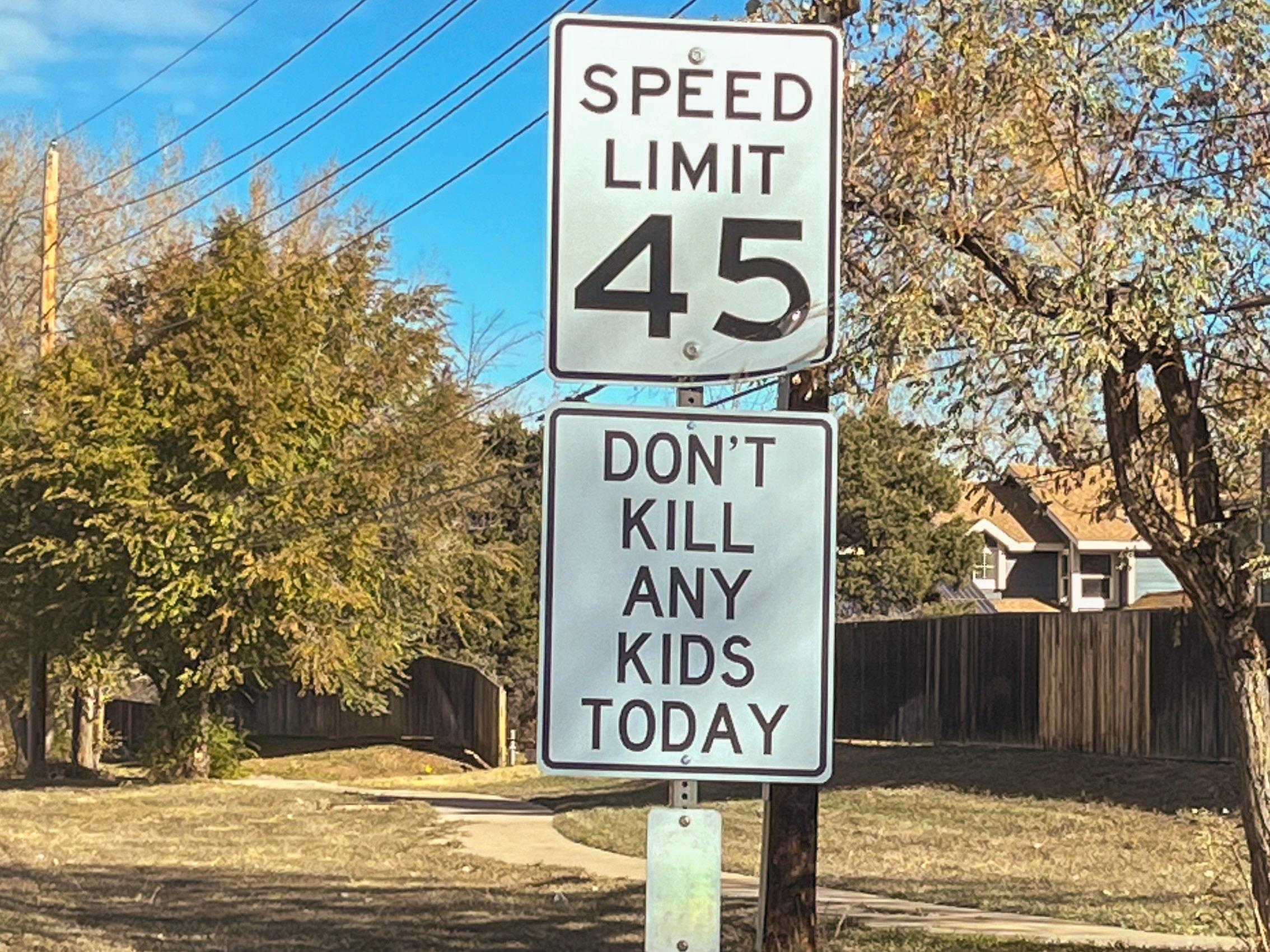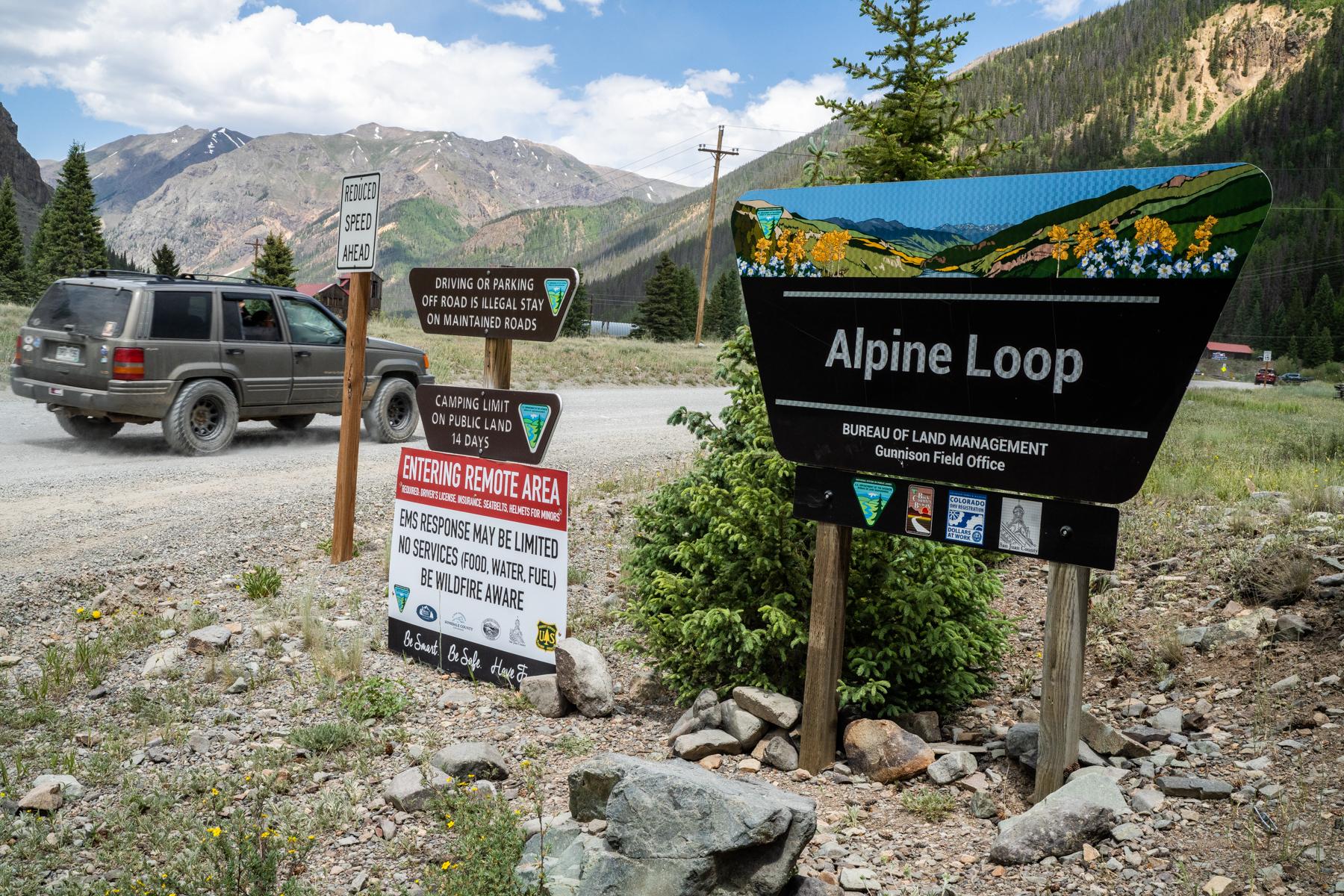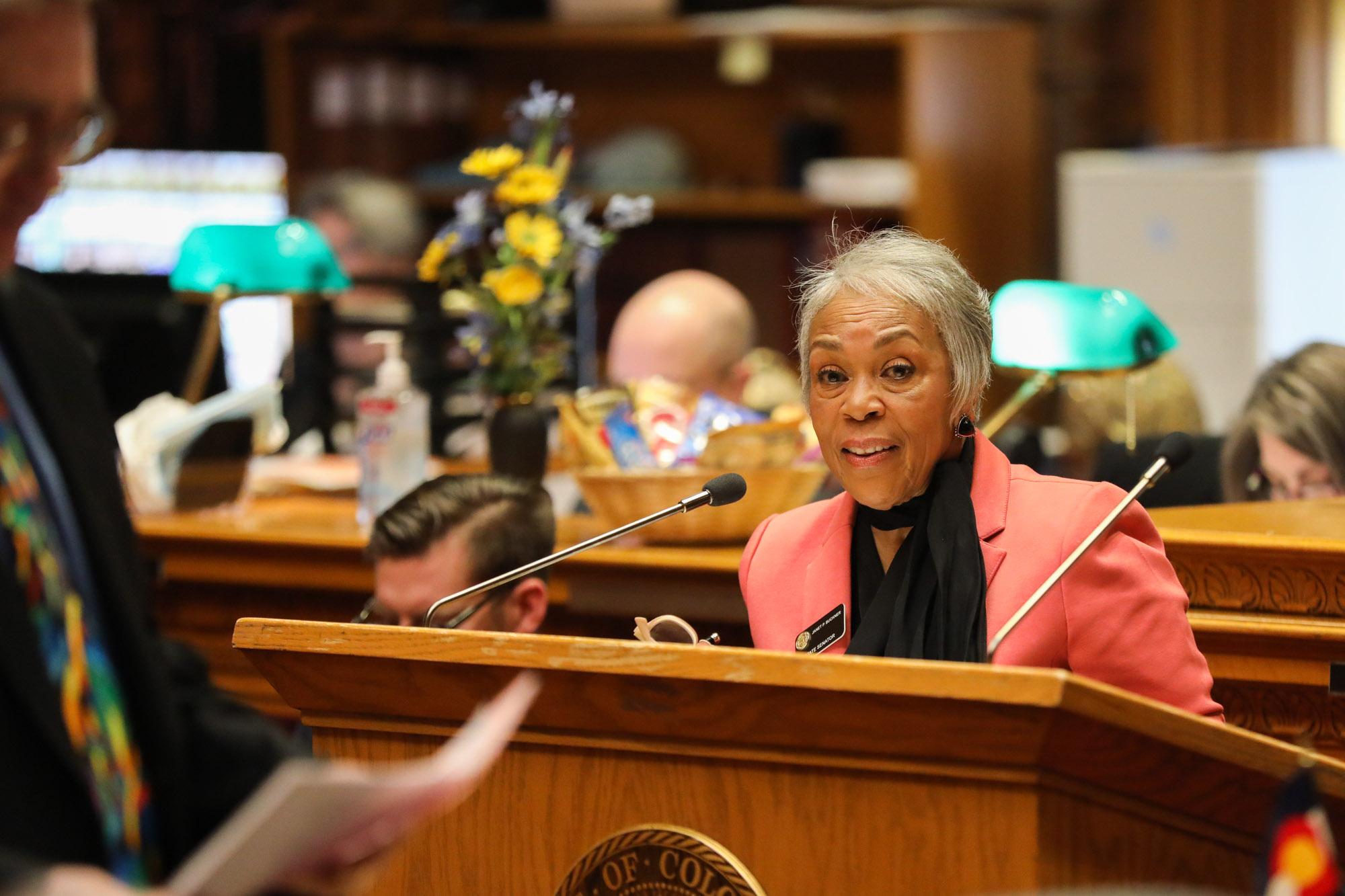
Updated with transcript: Rising rents and higher property taxes are pushing some people out of Denver. Folks in the northern neighborhoods of Globeville and Elyria-Swansea have been hit especially hard, which is why they want to establish a community land trust. The basic idea is that a nonprofit, membership-based organization is set up to buy and maintain land on behalf of the neighborhoods.
We spoke to some residents in the neighborhoods about their hopes for the land trust. Then, in the studio, Nola Miguel, director of the Globeville, Elyria-Swansea Coalition Organizing for Health and Housing Justice, talked about how the organization started exploring the idea of a community land trust a couple of years ago as a way to preserve affordable housing in the area.
Beth Sorce also joined the conversation. She's been advising the GES Coalition on this effort. She's the director of capacity building at Grounded Solutions Network, a national organization that has helped communities around the country set up land trusts.
Why community residents want to stay:
Beth Sorce on how a community land trust thinks differently:
Nola Miguel on the challenges of managing a community land trust:
Ryan Warner: This is Colorado Matters from CPR News. I'm Ryan Warner. Rising rents and higher property taxes are pushing people out of Denver. Folks are especially hard-hit in one of the last few places you can still find a deal: the North Denver neighborhoods of Globeville, Elyria, and Swansea. Maria Rivera: A lot of people have moved because the increasing of the rent. Most everybody has more than one job, you know. I do. RW: Maria Rivera, a single mother of two, has lived in Swansea for almost 20 years. She says she's had to work long hours to keep a roof over her family's head, and pay for her kids' health insurance. But something is giving her hope. MR: I really feel excited about Banco De Tierra. RW: Banco De Tierra. She is referring to a community land trust. It's an idea these Denver neighborhoods want to try. The community would own the land where there are already homes to keep housing affordable. Rivera has been attending meetings about this. MR: Every time I can assist, I'm here. I work the whole night, and I'm here. Okay? I do not sleep, anything. But you know, when you have the necessity, you got to do it--whatever it is. RW: Also, at these meetings, twenty-year Swansea resident, Holliday Aguilar. The house she rents has been bought by CDOT. It'll be demolished to make way for the I-70 Expansion. So where does that leave her? Translator: Holliday Aguilar via translator: The truth? I don't know. I still don't have one place where I can say: "I'm going there." I don't know. I don't know where. RW: Aguilar says she doesn't want to leave her community. Her kids grew up there and still work in the area. But she hasn't been able to find a place she can afford. Residents see homes getting flipped. They also worry about what a big re-development of the National Western Complex will mean for prices. Rey Gallegos of Globeville, is a member of the coalition behind this land trust idea. Rey Gallegos: Our community is so tight-knit and for this displacement to go on, it really puts a lot of stress on not just the adults of this area, but also the children. We do want our children to have that sense of ownership of a community. That they have a place here and that they can grow up to build something here in these communities, and own a home in the same place where their aunts or uncles or grandparents live. RW: So how would the land trust allow them to do that? Here to answer that question is Nola Miguel, who is working to make it a reality and Beth Sorce with Grounded Solutions Network, a national affordable housing group. She'll tell us how land trusts have played out elsewhere. And welcome to both of you. Nola Miguel: Thank you. Beth Sorce: Thanks. RW: You work with neighborhoods all over the country interested in setting up these land trusts. Will you briefly break down the basics of how a community land trust works and keeps housing affordable? BS: Sure. So, there are lots of different flavors of community land trusts across the country. There's about 250 of them in 46 states and internationally. So there are lots of different types. But the classic community land trust is a non-profit organization that acquires land and holds it permanently on behalf of the community. RW: The land may have homes on it as well. BS: That's right. It could be vacant land; it could be residential with homes; it could be commercial with retail stores. It could really be anything. RW: Hmm. BS: And so what sets community land trusts apart is this idea that they're purchasing it and holding it on behalf of the community. So oftentimes we ask: What's the highest and best use of a piece of land and we answer that economically. The community land trust asked that same question and answer it from a community perspective. So what's going on in the community that's being unmet needs? Is it housing that needs to be affordable? Is it commercial spaces? Is it agriculture? And they try to make that happen. So from a housing perspective, the way that they do that is the community land trust holds that land. They take one-time public investments to purchase a home, or to build a home, and use that public investment to make it affordable to the first homeowner. RW: And to presumably keep it that way over the long-term. BS: That's exactly right. So when that homeowner purchases that home, they purchase it below market-rate price. And they make a deal. They say to have this opportunity, I am going to agree to pay it forward to the next person and sell it at a below market-rate price. And that happens again and again and again. RW: It's not that that person wouldn't earn anything on their home. It's just that they wouldn't get the windfall that they might in another neighborhood a decade later. BS: Exactly! The whole point is to try to find that median point, that balance point between building as much equity for households that we can; that's critically important ... And making sure that that home is affordable for the next purchaser. RW: So Nola, you direct the GES coalition organizing for health and housing justice. This is the group leading the effort. How did you decide on a Community Land Trust to address the economic issues in Globeville, Elyria and Swansea? NM: We'd been looking at a variety of different types of solutions around preserving affordability in housing, and think that there are a variety of solutions that we need. RW: This isn't the magic bullet, in other words. NM: No, but it is an important one that isn't being done. We see affordable housing developments that are happening and we're going to have those. We have four transit stations in Globeville, Elyria-Swansea, right on the edges of Globeville/Elyria=Swansea, so there will be large-scale affordable developments, mixed-income. What's not happening is a way to preserve existing homeowners in the neighborhood in a little bit of a different way and in a way that the community is able to own that land. RW: For a period of how long would this go on a century? Is it a 99 year agreement or what? NM: The entire point is to do it forever. Legally, that creates some challenges. So, each homeowner will sign a 99-year lease that is both renewable and inheritable and the idea is to go on as long as possible. It's kind of the same as a conservation land trust, right? It's the same idea. RW: So the coalition needs to raise between $2 and $3 million dollars to establish this land trust, and Nola, you're seeking money from Denver's new Affordable Housing Fund. The city will announce how they will distribute those funds this fall. You've also asked for money from CDOT, which has set aside $2 million to be spent on affordable housing in Elyria-Swansea with the obvious eye towards what's happening with I-70 and how it's changing the neighborhood. I'll say that both the city and CDOT have said they are open to contributing but haven't committed. And I understand you are looking at buying 10 lots to start. Doesn't seem like very much, is that the best use of this money? NM: We're still in the process of figuring out the exact amount of dollars, and this pilot, or demonstration project, will really help us figure out how much those actual costs are- RW: So this is dipping your toe in the water? NM: Exactly. RW: You imagine this would be bigger than 10 lots at some point. NM: Definitely, we're looking at more like 150. RW: Overall in the neighborhood? Nola: Mm-hmm (affirmative). Over a five year span. RW: Is that about the size of a lot of these land trusts elsewhere in the country and the world? NM: Sure, so depending on the size of the community and the desire of the community, they can range from 10 to 20 homes to upwards of a thousand, especially if we have rentals. That seems to be kind of the bigger mix. But I want to go back to your previous question, too. So I think one thing that's really important to remember about community land trusts is it really takes these one-time subsidies and sinks it into the community for the community's use forever. So oftentimes when we will build home ownership, or even rental housing, those units are restricted for five, 10 or 15 years and then they go to the market. So at some point, that public investment goes away. It goes to the households and we lose it. RW: It evaporates. NM: It evaporates, so even though we're talking about big pots of money for Globeville, Elyria-Swansea, it's going to be the best, most efficient use of those resources. RW: Because you think it's long-lasting. How does rental fit into the mix? So I understand the ownership, but tell me about that. NM: Rental is an important component that a lot of community members have been saying that's a big need. We would like to do about half home ownership, half rental eventually. Just the need for having a stable rent that isn't going to be jacked up every other month is extremely important right now and with conditions in those homes that are livable. RW: Your organization recently did a survey to better understand the effects of gentrification in this part of north Denver and nearly 90% of the people you interviewed said they're at risk of displacements. You also learned that renters are particularly vulnerable in that environment. And that the numbers in this neighborhood are really stunning in terms of how fast the cost of housing has grown. Average home values in Globeville have grown from just under $50,000 in 2008 for a single-family home to nearly $250,000. In Elyria-Swansea, the average price in 2008 was around $67,000. Now, more than $230,000. So just a picture of what economic forces are at play there. Where has this worked really well, elsewhere in the country or the world? NM: Yeah, so I think especially, you're painting a really terrifying picture of a neighborhood that's heating up really fast, and it's going to pave the way for displacement that's already happening. So I think we see, in markets like that, we see community land trusts that are really successful in Seattle and San Francisco and Boston and they're getting started in New York and Cooper Square has been there for decades. We're seeing them be successful in communities that have historically been affordable like Portland, Oregon or Oakland, California and they're really starting to take off, too. RW: What are the pitfalls? What are the risks? NM: I think the biggest risk is the biggest challenge getting started and that's funding, right. We can create as many programs as we possibly can and they can all be wonderfully designed, but if there's no resources and political backing behind that community land trust, they're not going to be able to accomplish much. RW: But once they're up and running, are they hard to manage? When these do well, why do they do well? NM: Yeah. We use the word stewardship. That's really the key to their success. Oftentimes, again, when we create typical affordable housing, there might be a nonprofit or someone else who's standing behind that homeowner up until the point of purchase. Community land trusts, we sometimes say, are the developer that never goes away so we stand behind those homeowners or the residents and the community and those homes forever to make sure that if there are challenges that are coming up, we try to address them before they become insurmountable and before the home is lost or the homeowner is in foreclosure. RW: You're listening to Colorado Matters. I'm Ryan Warner and we're talking about a method of potentially stabilizing rents and even homes for sale in North Denver with the idea of a community land trust. Essentially, the community would hold onto land, onto property, homes with the idea of keeping those homes and potentially even those businesses affordable. We heard in the introduction just how motivated some folks in the neighborhood are to be a part of this. Will there be a long waiting list of folks who want these properties, who want to have first dibs and how do you begin to sort that out? NM: Beth might be that they'll talk about different ways that that happens. I've heard off lotteries and things like that. I think that's something that our Board will decide. RW: What kind of buy-in do you need from members of the community itself to make this happen? When I say that, I just mean the neighbors, not necessarily the top brass at this city, for instance, but does this community trust include the folks who are living there right now? BS: During our current process, we're doing board development and in a typical board or governance of a community land trust, you have a tripartite structure. RW: A tripartite structure? Okay. BS: Yes. RW: Say that in English for me. BS: There's three parts. One is the community members-at-large, the people that live in the community. Another third is the people that actually live on the land that's owned by the land trust. The other third is potential stakeholders that are housing experts or government officials. RW: You need that buy-in from the community even if they're not living on the land that would be a part of the trust? BS: That's right and we are working on a membership campaign to talk to the community at large about the community land trust where they could become a member of the community land trust without necessarily putting your land in the land trust, but just being a stakeholder in how it rolls out and being able to, for instance, vote on that board. RW: Would that be a financial contribution, would there in other words be private dollars potentially in this? BS: Because the community is so low income, we're not going to ask ... RW: Very expensive. BS: For a ton of money, but maybe a dollar, what people can afford to put in. RW: Could that lead to mismanagement? Could things go awry under that scenario? BS: I think that one of the unique things about Community Land Trusts and the tripartite board that Nola just discussed is that it really is putting individual tensions up front, right. We have the tensions of the direct beneficiaries who live on land trust land who want and need certain things and the community may want or need different things and the stakeholders, who could be attorneys or funders, may want or need different things and that's intentionally up front in the governance structure, so that those things come out. I don't think we see a lot of mismanagement. RW: Is it possible that displacement will move faster than the idea of a Land Trust. That is to say, people are being displaced right now, meanwhile you're getting your Board together, is this going to happen soon enough? NM: The short answer is no. We're losing people every day. I mean I worked with four families last month and we were only able to keep one of the families in the neighborhood. The other three left for Adams County. I mean, we have to do everything at the same time. We also need emergency funds to help out with immediate increases in rent. Immediate needs that are happening and that's another strategy that we're pursuing is those emergency housing funds as well. RW: So it might be that it prevents future displacements, not current displacements. BS: I think the hope is to get it started as quickly as possible. We know we're losing households. RW: Thanks to both of you for being with us. Appreciate it. BS: Thank you so much. NM: Thank you. RW: We heard from Nola Miguel who hopes to establish a community land trust in the Denver neighborhoods of Globeville, Elyria and Swansea. And Beth Sorce, she's with Grounded Solutions Network which works nationally on land trusts and other affordable housing solutions. This is CPR News. |
Related:
- As East Colfax Redevelops, Affordability Goals And Gentrification Are Neck And Neck
- Denver Mayor Michael Hancock On Affordable Housing And Immigration Enforcement
- The Denver Metro's Hunger For Housing Is Squeezing Mobile Home Parks
- Despite Creative Approaches, Study Says Denver Comes Up Short In Affordable Housing









